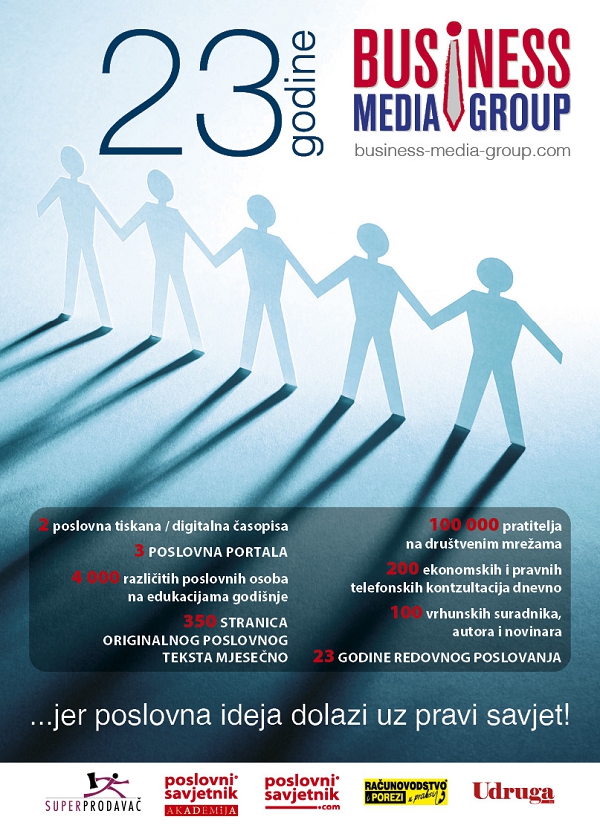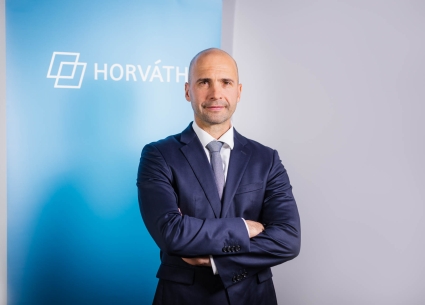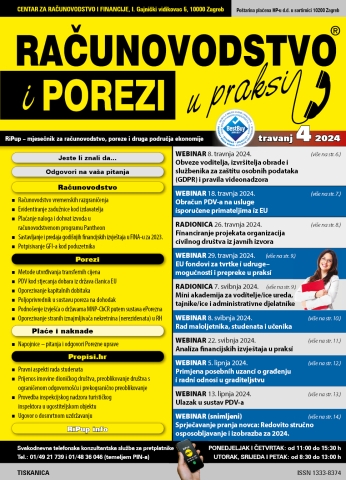Leadership in a VUCA World – Invest in yourself and in your workforce to survive
We live in a VUCA world…. VUCA stands for: volatility, uncertainty, complexity and ambiguity.
• Volatility, the dynamics of change • Uncertainty, the unpredictability of change • Complexity, the number of variables that influence change • Ambiguity, the confusion between cause and effect.
VUCA requires new Leadership as prof. Bill George (author of ‘the True North’) stated last week: ‘Management is already tough enough in normal times. But what should leaders do when their companies are buffeted by global uncertainty?’
Management is Top Sport, whether it is in commercial companies, politics or in other sectors. It is just a pity that only a few managers realise this.
George: “You cannot run business as usual anymore! Leaders must deal with growing uncertainty, complexity, and ambiguity in their decision-making environments. CEOs have little idea what to expect in terms of health care policy, financial transactions, national security, and global trade, all of vital importance to themselves, their employees, and their stakeholders.
Managerial training in the classic techniques of financial forecasting, strategic planning, statistical decision-making and control systems have not prepared them for this amount of flux in the environment. In short, these rapid-fire changes are putting extreme pressure on business leaders to lead in ways we have not seen before.”
You have to become a VUCA Leader!
Every human gets confronted with all kinds of unexpected issues in his/her life, these are no coincidences and it is of all times.
Only, today these issues seem, in analogy of disruptive developments, to increase in volatility, uncertainty, complexity and ambiguity.
If you, besides being a human, also are a manager or a leader, so, if you have to give the example, if you have to plan the future etc., how do you fulfil that role?
How to become a VUCA Leader with Vision, Understanding, Courage and Adaptability?
Vision: Today’s business leaders need the ability to see through the chaos to have a clear vision for their organizations. They must define the True North of their organization: its mission, values, and strategy. They should create clarity around this True North and refuse to let external events pull them off course or, cause them to neglect or abandon their mission, which must be their guiding light.
Understanding: With their vision in hand, leaders need in-depth understanding of their organization’s capabilities and strategies to take advantage of rapidly changing circumstances by playing to their strengths while minimizing their weaknesses. Listening only to information sources and opinions that reinforce their own view carries a great risk of missing alternate points of view. Instead, leaders need to tap into myriad sources covering the full spectrum of viewpoints by engaging directly with their customers and employees to ensure they are attuned to changes in their markets. Spending time in the marketplace, retail stores, factories, innovation centres, and research labs, or just wandering around offices talking to people is essential for the VUCA Leader.
Courage: Now more than ever, leaders need the courage to step up to these challenges and make audacious decisions that embody risks and often go against the grain. They cannot afford to keep their heads down, using traditional management techniques while avoiding criticism and risk-taking. In fact, their greatest risk lies in not having the courage to make bold moves. This era belongs to the bold, not the meek, timid and doubters.
Adaptability: If ever there was a need for leaders to be flexible in adapting to this rapidly changing environment, now is the time. Long-range plans are often obsolete by the time they are approved. Instead, flexible tactics are required for rapid adaptation to changing external circumstances, without altering the strategic course. This is not a time for continuing the financial engineering so prevalent in the past decade. Rather, leaders need multiple contingency plans while preserving strong balance sheets to cope with unforeseen events.

VUCA Leader: What happens in the international labour market?
We see disruptive changes in commercial markets and in consumer behaviour for a few years now, competition is heavily increasing, we need to be more flexible, innovative and customer oriented. Slowly most Leaders see and understand what is happening here. Some already take action.
But do you also see the fast changes in the international labour market? Do you realise there is a ‘War on talent’ going on in Europe? Even global? How will changes in the labour market impact your internal organisation? Your workforce, your employees have to do most of the work for you.
They are or will soon become your ‘bottle-neck’. How do you get the best people in your company so your company can excel and will be or stay competitive? A few important changes are:
- The labour market is becoming much more flexible with the growth of flex-workers, temporary contracts, consultants etc.
- New competences and skills are becoming immense important because of internationalisation, changes in markets, production, cooperation.
- Many professions will disappear, new professions will develop; just look at e.g. the 25 new professions that do not exist today but are necessary in most sectors in 2020.
- Demographics are changing fast; retirement is now often later than at 65 years so there are older, experienced workers available.
- Some countries have a shortage of talented people because many talents left their country.
- Prognoses are a structural shortage of employees in many sectors in many countries; e.g. 40.000 in Croatia (a year), 80.000 or more in West European countries (a year!)
- Employees (generation Y and Z) require appreciation and recognition for their contribution and they want to do work that fits with their talents and ambitions. From now on they can choose their employer.
VUCA Leader: From High Potentials to Talent Management
Because of the rapid changes in the labour market, robotics etc. we see for some years now that the policy focused on High Potentials does not work anymore. Companies switched to Talent Management. We see that not only companies but even countries are competing to get the best talents to their country. Several countries already offer exclusive conditions and special courses for talented foreign students to participate in their universities and from there they can enrol in interesting jobs. Countries that rank high on innovation in the International Competitiveness Reports (World Economic Forum) already invested for many years to attract the best (foreign) people available.
E.g. I feel proud to teach groups of special selected international students at Tilburg University (Netherlands). It is very interesting to see and hear what the ambitions and wishes of these students for their future are, what they are working on and what they are doing to achieve their goals.
VUCA Leader and HRM
One of the important new tasks of a professional HRM-department is not only the recruitment of talented people but especially creating and offering the conditions in which they want to work, creating the environment in which they can flourish. If your people flourish your company will certainly benefit.
We are not talking about a small, select group of employees; we talk about all employees in the company. It is a fundamental shift from an exclusive to an inclusive HR-policy that basically states that every employee has value and potential for the company. Building a company culture, an open culture with open communication that stimulates teamwork and cooperation across departments.
For some CEO’s and HR-managers this requires a 360 degrees different way of thinking. It is not easy but certainly necessary to make that mental and cultural switch, and that investment.
Three types of skills: knowledges, transferable skills and self-management skills.
Not too long ago, knowledges – that what you know – were the most important skills in the workplace. With knowledge, people would spend years mastering a specific expertise and then build their career around that. But that is quickly changing, in a rapidly changing world where information is a commodity, transferable skills (what you can do) are quickly becoming most important. For organizations, this has a dramatic effect on hiring and the importance of developing your workforce.
Three types of skills
There is no shortage of skills in the world but according to Sidney Fine they all fall into three main categories:
Knowledges: ‘that what you know’ and what makes you an expert in your field.
Self-management skills: skills on ‘how you do your work’. Time management is a classic self-management skill, for example. Self-management skills have always been important, are still important and will remain important, regardless of market conditions.
Transferable skills: skills are boiled down to ‘what you do and can apply to almost any task you take on’. For example, your learning ability is a transferrable skill. Leadership skills are a transferable skill. Being strategic is a transferrable skill.
Why transferable skills have surpassed knowledges
Not that long ago, the world did not change that fast, and information was hard to come by (think pre-Internet how difficult it would be to learn a new tactic in Excel, for example, whereas today you just Google it). Therefore, organizations needed people who were highly trained on a specific topic, and a person could build a career around that. Today, that is changed. With so much information so easily accessible, and with that information always changing, expertise on a specific topic matters less. What matters more is how quickly a person can learn and use new information in the best way possible (two transferable skills).
What this means for organizations, in regards to hiring and developing talent
This change has ramifications on how organizations need to approach recruiting and developing talent. Specifically, who you hire is less about their expertise and more about their core capabilities. And … you need to commit to developing people to a constantly changing business landscape.
Today, rather than look for 10 years’ experience in a specific field, what is more critical are their transferable skills. Has this person adapted to change in their field? Are they simply doers or do they have a strategic view of their work? Are they creative? Do they take responsibility for their actions?
Additionally, it is more important than ever to constantly develop your workforce. The key is emphasizing the importance of learning and by making learning possibilities always available.
Bottom line, with few exceptions the days of a highly specialized worker is coming to an end. What matters more now is finding an adaptable worker who can adjust to new market conditions and knows the most important tasks to prioritize.
And the organizations that recruit and develop those curious minds will be the most successful moving forward
Research from Gallup
Gallup (September 2016) researched 22 organisations and teams with in total 1,2 million employees. Organisations and teams with the focus on strengthening and development of the employee’s talents performed clearly better compared to organisations and teams that did not focus on talent development.
Most important results were that in the organisations and teams with the focus on strengthening and development of the employee’s talents, their profit increased with 14-29%, employee engagement increased with 9-15%, people leaving the company strongly reduced as security incidents decreased with 22-59%.
Conclusions:
Focus on the positive and strengthening of talents, instead of working on weak points.
Focus on developing everybody’s talents, instead of focus on some high potentials.
Focus your culture on open communication, personal responsibility and accountability, instead of on ‘control’.
This results not only in happier and more engaged employees, but it results in better company results.
John Lodder MA., MSc.
www.balance-consultancy.com















